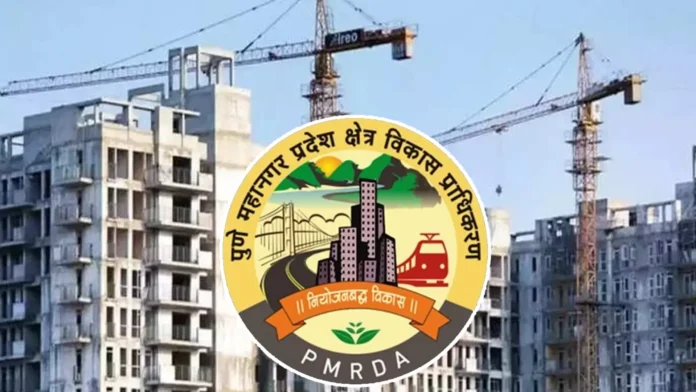PMRDA Unveils Decentralisation Strategy to Streamline Building Permissions and Improve Citizen Access
In a significant move aimed at enhancing operational efficiency and addressing long-standing grievances, Pune Metropolitan Region Development Authority (PMRDA) Commissioner, Yogesh Mhase, announced a decentralisation plan for the authority’s development permissions department. The announcement was made at a seminar held as part of the state government’s ambitious 100-day seven-point action plan. This decentralisation is expected to expedite the approval process for construction projects, thereby benefiting both the citizens and the department’s operational dynamics.
Under the newly introduced system, authority over building permissions will be distributed among various levels of the PMRDA hierarchy based on the size and scale of the projects. Smaller projects, up to 1,000 square metres, will now be managed by Assistant Metropolitan Planners, while projects of up to 2,000 square metres will fall under the jurisdiction of Deputy Metropolitan Planners. Larger developments, ranging between 2,001 and 4,000 square metres, will be overseen by Joint Metropolitan Planners. Projects up to 10,000 square metres will be handled by the Director of Development Permissions and Town Planning, and anything above that will continue to be managed by the PMRDA Commissioner himself. The move aims to reduce bottlenecks at higher levels of the organisation and ensure a quicker, more efficient response to building applications.
Optimising Workload Distribution to Improve Service Delivery
The decentralisation plan also addresses concerns regarding an unequal workload distribution within the PMRDA’s development permissions department. Mhase shared that steps will be taken to balance responsibilities across officers and staff, ensuring that the scope and nature of each project are matched with the resources available. This will help prevent delays and provide more effective service to the public. Along with these operational changes, the PMRDA has taken additional measures to improve citizen engagement. In response to concerns raised during the seminar, fixed times for citizen consultations have been introduced. Assistant Town Planners will now be available daily from 2 pm to 4 pm to meet with citizens, while the Commissioner himself will be accessible every Monday and Thursday for direct interaction with those seeking urgent assistance.
Additionally, Mhase unveiled plans for a comprehensive update to the PMRDA website, set to be launched within the next 15 days. This new website will be more user-friendly, featuring real-time updates on office circulars, decisions, and other relevant information to enhance transparency. The platform will aim to make it easier for citizens to access essential information and engage with the department, thus reducing delays caused by miscommunication or lack of awareness.
Sustainable Urban Growth: Improving Infrastructure and Services
While the decentralisation of operations is a key development, Mhase also highlighted several ongoing and future projects aimed at improving Pune’s urban infrastructure. These projects include the establishment of 11 new fire stations across the district, aimed at improving emergency response times, and the creation of regional offices and taluka-level offices to make PMRDA’s services more accessible to citizens in remote areas. Furthermore, a river pollution control initiative is set to be implemented to ensure the sustainability of Pune’s water resources and improve the city’s overall environmental quality.
These initiatives align with the PMRDA’s broader commitment to sustainable development. In an urbanising region like Pune, managing rapid growth while ensuring the preservation of environmental resources is crucial. Sustainable urban development practices are central to ensuring that the city can accommodate its growing population without compromising its natural resources or quality of life. The decentralisation strategy is part of a larger effort by PMRDA to deliver more efficient services and support sustainable growth across the region.
Moving Towards a More Citizen-Centric Urban Governance Model
In an era of rapid urbanisation, the importance of transparent and accessible governance cannot be overstated. PMRDA’s decentralisation of building permissions, combined with the introduction of fixed consultation hours and the revamped online platform, demonstrates a shift towards a more citizen-centric model of urban governance. These efforts to streamline processes, improve accountability, and ensure better access to information will contribute significantly to Pune’s growth and its residents’ well-being. Moreover, with a focus on environmental sustainability, these reforms offer hope that Pune can lead the way in creating a balanced, eco-friendly urban environment while meeting the demands of development.



